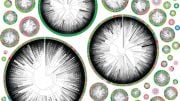
Autism is a neurodevelopmental disorder that affects communication, social interaction, and behavior. Research has shown that people with autism may experience pain differently than neurotypical individuals.
According to a study published in PAIN, the official journal of the International Association for the Study of Pain (IASP), individuals with autism may have normal pain thresholds but increased sensitivity to painful stimuli.
“This evidence demonstrating enhanced pain sensitivity warrants changing the common belief that autistic individuals experience less pain,” according to the report by Professor Irit Weissman-Fogel of the University of Haifa, Israel, and colleagues. They believe their findings highlight the need for increased awareness, which may impact the effective treatment of pain in people with autism.
New evidence questions the assumptions about pain in autism
The researchers aimed to test the “prevailing assumption” that people with autism are hypo-sensitive to pain. Current diagnostic criteria suggest that autistic people demonstrate “apparent indifference” to pain or temperature. Yet most previous studies have not shown differences in pain sensitivity in autistic individuals.
Prof. Weissman-Fogel and colleagues performed in-depth laboratory tests of pain perception in 104 adults, 52 with autism. This sample is the largest as of yet testing pain psychophysics in autism. The two groups had similar scores on a brief cognitive test. People with autism had higher use of psychiatric medications and rated themselves as having greater anxiety as well as higher sensitivity to pain and to daily environmental stimuli (such as smell, noise, and light). This research project was funded by the Israel Science Foundation (ISF; 1005/17).
On quantitative sensory tests, there were no differences in thermal and pain detection thresholds between the autistic and non-autistic groups. This indicates normal pain and thermal thresholds, suggesting “normal functioning of the peripheral nervous system” among participants with autism.
However, the autistic group gave consistently higher pain ratings in response to various stimuli above their pain threshold, proving pain hypersensitivity. The tests also provided evidence that people with autism can successfully inhibit short pain stimuli but not long-lasting pain stimuli. Importantly, experiencing long-lasting pain in daily life is a risk factor for developing chronic pain.
New findings may lead to early treatment and better quality of life
Together, the findings suggest that people with autism have a “pro-nociceptive” pain modulation profile: their brain appears more active in facilitating pain experience and less active in inhibiting continuous pain. This is consistent with the theory of excitatory/inhibitory imbalance as an underlying mechanism of autism spectrum disorder – but one that has been neglected in terms of pain processing.
The study questions the perception that people with autism experience less pain, and instead suggests that they may have enhanced pain sensitivity. Prof. Weissman-Fogel and colleagues write, “This misinterpretation can lead to late diagnosis and poor treatment causing suffering and exacerbating the autistic symptoms” – potentially increasing the risk of developing chronic pain conditions. While their study focused on a group of autistic people with essentially normal cognitive function, the researchers write, “these results may also apply to people with autism whose cognitive and verbal communication impairments may eliminate their ability to communicate their pain.”
Prof. Weissman-Fogel and coauthors conclude: “These findings may raise physician, parent, and caregiver awareness to the pain phenomenon in autism, and thus lead to early and effective treatment to improve the wellbeing and quality of life for autistic individuals and their families.”
Reference: “Indifference or hypersensitivity? Solving the riddle of the pain profile in individuals with autism” by Tseelaa Hoffman, Tamib Bar-Shalita, Yelenad Granovsky, Eynatf Gal, Merryf Kalingel-Levi, Yaela Dori, Chend Buxbaum, Natalyag Yarovinsky and Irita Weissman-Fogel, 26 August 2022, PAIN.
DOI: 10.1097/j.pain.0000000000002767









Be the first to comment on "Defying Prevailing Assumptions: People With Autism Are Not “Indifferent or Hypo-Sensitive” to Pain"